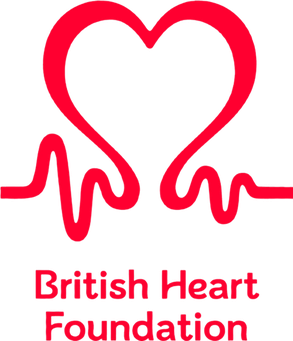The British Heart Foundation (BHF) raise funds for research into heart-related disease. They have over 4,000 paid employees, and 24,000 volunteers. Most of the volunteers work in the retail side of the charity, running charity shops around the country.
The safeguarding team at the organisation have a range of incentives in place to provide emotional and mental health support to their large workforce [1].

Their priorities are:
- Promoting emotional resilience through safeguarding frameworks and strategies to enable staff to support service users and volunteers
- Incorporating mental health and wellbeing into organisational safeguarding strategies, including counselling sessions and mental health champions
- Tailoring emotional support services for support staff, regularly engaging with vulnerable individuals
The safeguarding board play a key role in identifying and developing resources for building staff resilience. The board meet regularly to identify any patterns in workforce wellbeing that may cause reason for concern. Many safeguarding concerns have roots outside of the BHF, but the board still acknowledge the impact that out-of-office experiences can have on an individual.
Preventing Harm
Prevention of harm is a core element of the BHF’s safeguarding policy. A focus on the prevention of harm was crucial during the pandemic given the potential impact that home working could have on mental health. The safeguarding board were aware that mental health would be compromised due to feelings of isolation.
The Heartline is a telephone line, in which staff, volunteers and the public can speak to a cardiac nurse if they would like additional information or support.
The number of calls doubled following the first lockdown, with over 18,000 calls made and over 5,000 emails sent between 1 April 2020 and the end of March 2021.
Even before the pandemic, the BHF spent several years exploring the impact and needs of teams experiencing vicarious trauma and stress:
“The experience of trauma symptoms can result from being repeatedly exposed to other people’s trauma and their other stories of traumatic events.” – Scott Berney, Head of Safeguarding, British Heart Foundation [1]
The impact of vicarious trauma had to be addressed by the safeguarding board at the BHF, particularly during the pandemic when interaction with the Heartline telephone line doubled.
Commissioning Supervision for Front Line Staff
During the pandemic, the frontline BHF workforce manning the phone lines were working from home. Often these people were living alone, so ad hoc support from colleagues was removed.
Staff were dealing with more safeguarding and welfare issues so, within weeks of the first national lockdown, the BHF commissioned a supervision and resilience-building package.
This involved one-to-one meetings hosted either weekly or fortnightly depending on the needs of the colleague. This gave people a chance to talk through aspects of their work alongside their wellbeing and mental health.
The workforce provided lots of positive feedback, they were impressed with the speed at which the BHF offered a wellbeing strategy during the first wave of the pandemic.
As a result, a more resilient workforce was developed during this time. Data from the BHF showed that over a period of 6 months, the team’s reflective functioning steadily improved.
Mental Health First Aiders
The BHF work with Mental Health First Aid (MHFA) England, to provide their workforce with a team of people equipped to support their wellbeing. They work as counsellors and refer colleagues to other services if they feel it is necessary.
MHFA England is the largest provider of mental health first aid training in the UK and Europe. Pre-pandemic the BHF was connected to just over 100 Mental Health First Aiders (MHAs). During the pandemic, there was a sharp increase in demand for the MHAs.
The safeguarding board knew that this would be extremely taxing on the first aider team as they were also bearing the weight of the pandemic. They reached out to MHAs to ensure they were still willing to be available to colleagues at this time. They also provided further safeguarding sessions, including having conversations about confidentiality and signposting.
Additional Resources
The BHF have published a wealth of resources that they developed to support staff who were supporting others. Examples of these publications include:
- Support for those at risk of suicide during Covid-19
- Coping with, and supporting people experiencing, grief and loss
- Domestic abuse support and information
They also hosted live chats and webinars on these topics.
The safeguarding board knew that there would be a variety of mental health issues that would manifest as a result of staff and volunteers returning to offices and shops.
In response, regular meetings were hosted by the Head of Safeguarding Scott Berney, with the area managers of the retail outlets. The function of these meetings was for Scott to assess how prepared the shops were for welcoming staff back into work.
Having these conversations with retail managers enabled them to reset workplace boundaries, in turn creating new workplace structures that were more mentally healthy.
Additionally, the Employee Assistance Programme at the BHF provides a source of confidential and independent advice on life’s challenges. It comprises digital resources offering advice on mental health, finances, physical wellbeing, and legal advice. This is available to all staff and volunteers at the BHF.
Overall, the BHF provided a wealth of resources and support during the pandemic for staff and volunteers. The tools aimed to provide individualised support for the workforce, building a collectively more resilient workforce.
[1] Berney, Scott. 2022. Head of Safeguarding, British Heart Foundation
Register FREE to access 2 more articles
We hope you’ve enjoyed your first article on GE Insights. To access 2 more articles for free, register now to join the Government Events community.
(Use discount code CPWR50)




